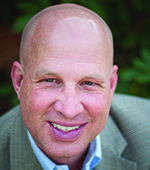 By John Chandler
By John Chandler
I split time living between two very different communities — very rural Fluvanna County in central Virginia and in the heart of Chapel Hill and the University of North Carolina. Splitting time between very red and very (light) blue neighborhoods sometimes causes me to double-take at things thought of as “normal” in either community.
So when I read the student newspaper at UNC, I am struck by recurring vocabulary and story lines. Perhaps the most striking of these to me are conversations around creating “safe spaces” on campus. Here, students are not speaking of rape or assault-prevention measures, but mental/communal zones in which they are free from “microaggressions” or even “triggers” to what might upset them. “Safe space” boiled over into the national news last fall at the University of Missouri, where students (and even journalism professors) forcibly evicted media from a campus safe space.
This has led to all manner of taunting about how childish 18- to 21-year-olds are today. Editorialist Glenn Harlan Reynolds in USA Today questioned whether such students should be eligible to vote. Syndicated columnist Thomas Sowell called into question the paradoxical playpen-like safe spaces with patterns of making noisy ideological demands on campus (“storm-trooper tactics”). He recommended expelling campus toddlers who vacillate between whining and throwing temper tantrums.
I’m of a more centrist bent here, and hope the conversation will trend that way as well. On the one hand, it’s easy to target such campus behaviors as juvenile, even infantile, the devil-fruit of the union between helicopter parenting and political correctness. It’s easy (and true) to snicker no one will coddle babies when they reach the workforce.
But heaven help us if young adults aren’t dreaming about a society safer than the one we’re in. Don’t look down on youthful idealism unless you have a better idea of how to address sweeping social ills. (I’m talking to you, church!) The world itself sorely lacks for safe spaces.
At the same time, it’s fair to say to college students hankering for safe spaces where no one can disagree with them, “Toto, you’re not in Kansas anymore.” College is not in loco parentis. You are (or probably someone else is) paying a lot of money for you to be formed for adulthood and citizenship. So don’t scream like spoiled children at people who disagree with you. Use your elite minds and rare opportunity to employ the disciplines of rigorous research, reasoned argument, civil disagreement, compelling debate and persuasive rhetoric.
And, while we are at it, this wouldn’t be a bad aim for congregational life. Bill Hybels once said his goal for the seeker-sensitive environment was to create a “safe space for a dangerous message.”
That’s a safe space worthy of our striving.
